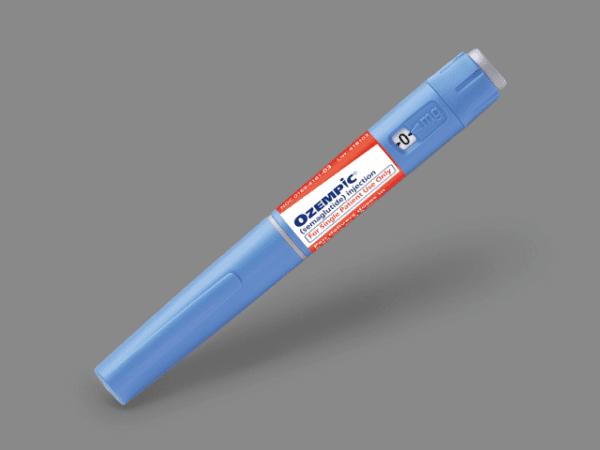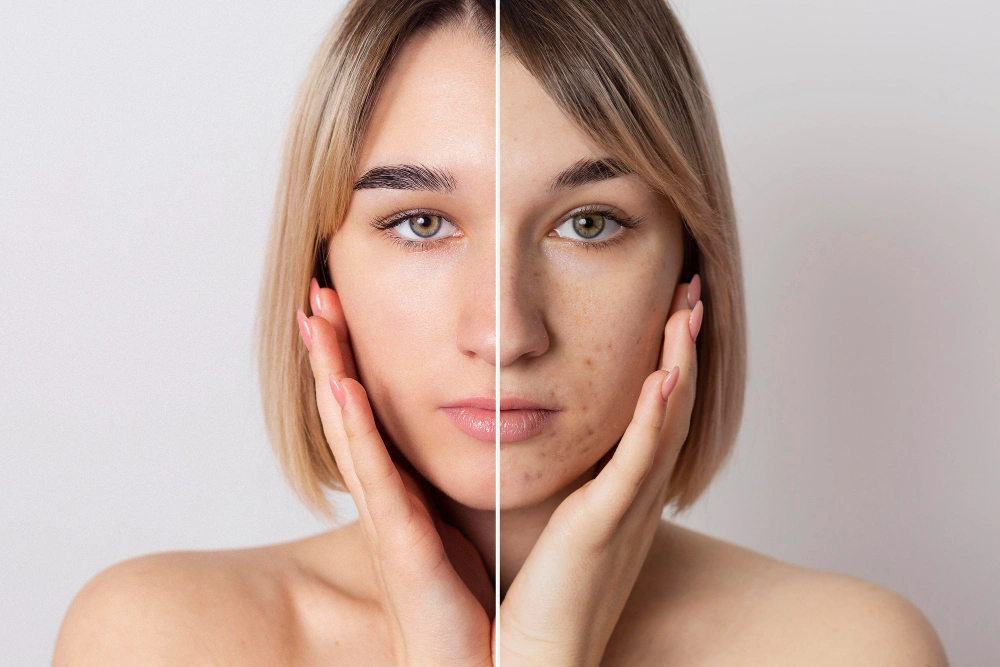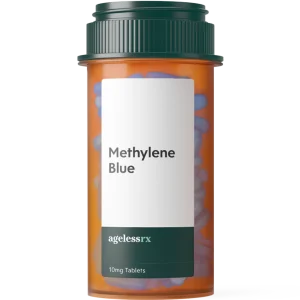Exploring Retinol's Effects on Skin Tightening
Transform your mental health journey with our top practitioners. Speak with a provider today to see what treatment is right for you.
- Appointments any day of the week
- Licensed healthcare providers in your state
- 24/7 patient support
The quest for youthful, firm skin is a timeless pursuit, and retinol has emerged as a popular ally in this journey. As an ingredient revered in the skincare industry, retinol promises to address various skin concerns. But what exactly is retinol, and can it truly help tighten sagging skin? In this article, we’ll delve into the science behind retinol, how it works, and its effects on skin tightening.
What is Retinol?
Retinol is a derivative of vitamin A, a crucial nutrient for maintaining healthy skin. Vitamin A plays an essential role in skin health by supporting the production of new skin cells and helping to repair damaged tissues. Retinol, as a derivative, is widely used in skincare products due to its ability to accelerate cell turnover, stimulate collagen production, and improve skin texture. Available in various forms like creams, serums, and oils, retinol is a versatile ingredient that addresses multiple skin concerns, including wrinkles, uneven tone, and, of course, skin laxity.
Retinol’s popularity can also be attributed to its accessibility and efficacy. Unlike some other skincare treatments that require professional application, retinol products can be incorporated into daily skincare routines at home. However, it’s important to choose the right formulation and concentration to suit your individual skin needs. Understanding the variety of retinol products available can help you select the most appropriate option for your skincare goals.
How Does Retinol Work?
Retinol works its magic by penetrating the skin’s outer layer and reaching the dermis, where it stimulates the production of new skin cells and collagen. The process of retinol absorption is crucial, as it allows the ingredient to work at a deeper level, promoting long-term skin health. Collagen is a protein that provides structure and elasticity to the skin. As we age, collagen production naturally declines, leading to sagging and wrinkles. By boosting collagen production, retinol helps to firm up the skin and reduce the appearance of fine lines.
The transformation induced by retinol goes beyond just collagen stimulation. Retinol also aids in regulating oil production, which can help in minimizing the appearance of pores and improving overall skin texture. Additionally, its ability to promote cell turnover helps in shedding dead skin cells, revealing fresher, more youthful-looking skin. These combined actions make retinol a comprehensive solution for various skin aging concerns.
Receive a personalized treatment plan from a medical provider after an online mental health assessment.
Retinol’s ability to tighten skin is primarily due to its impact on collagen. Numerous studies have shown that retinol can enhance collagen synthesis, which helps to improve skin firmness and elasticity. In a study published in the “Journal of Investigative Dermatology,” researchers found that retinol increased collagen production in aged skin, resulting in improved skin elasticity and reduced sagging. The study underscores the potential of retinol as a non-invasive solution for combating age-related skin changes.
Furthermore, retinol’s impact on elastin, another critical protein, should not be overlooked. Elastin, much like collagen, contributes to the skin’s ability to return to its original shape after stretching. Retinol’s role in maintaining elastin levels further supports its efficacy in improving skin tightness. By addressing both collagen and elastin, retinol provides a dual approach to enhancing skin resilience and combating the visible signs of aging.
Does Retional Help with Saging Skin?
The answer is yes, retinol can help with sagging skin. By boosting collagen and promoting cell turnover, retinol can improve skin texture and firmness. However, it’s important to note that results may vary based on individual skin types and the concentration of retinol used. While retinol can significantly enhance skin appearance, it may not completely reverse severe sagging or replace more invasive treatments like surgery.
Retinol’s impact on sagging skin can also be affected by how consistently it is used. Regular application is crucial for achieving and maintaining results. Many users report noticeable improvements in skin firmness after several months of consistent retinol use. However, the extent of improvement can depend on factors such as age, lifestyle, and overall skin health. For those seeking dramatic changes, combining retinol with other skincare treatments may offer enhanced results.
Factors Influencing Retional’s Effectiveness
Several factors can influence how effectively retinol tightens the skin:
- Concentration: Higher concentrations of retinol generally yield more noticeable results. However, they can also cause irritation, especially for sensitive skin. It’s often recommended to start with lower concentrations and gradually increase as your skin builds tolerance. This gradual approach helps minimize potential side effects while allowing the skin to adjust to the powerful effects of retinol.
- Skin Type: Individuals with thicker or oilier skin may experience different results compared to those with thinner, drier skin. Customizing retinol use to your specific skin needs can maximize its benefits. For example, those with oily skin might benefit from formulations that also target excess oil production, while those with dry skin should look for hydrating ingredients to complement retinol’s effects.
- Consistency: Regular use of retinol is key to achieving desired results. Consistent application over several months is often necessary to see significant improvements in skin tightness and texture. Establishing a routine that incorporates retinol into your nightly skincare regimen can help ensure ongoing benefits and prevent regression of improvements.
- Product Formulation: The formulation of the retinol product can affect its efficacy. Some formulations include additional ingredients like peptides or hyaluronic acid, which can enhance retinol’s skin-tightening effects. Choosing products with complementary ingredients can help address multiple skin concerns simultaneously, providing a more holistic approach to skincare.
Can Retinol Tighten Skin on Other Parts of the Body?
While facial skincare often gets the spotlight, skin laxity can affect other areas like the neck, arms, and abdomen. Retinol’s benefits aren’t limited to the face; it can also be used to improve skin firmness on other parts of the body. However, it’s crucial to choose products specifically designed for these areas, as the skin’s thickness and sensitivity can differ from that of the face.
Using retinol on the body can be particularly beneficial for areas that experience significant sun exposure or where the skin naturally loses elasticity over time. For example, the neck is a common area of concern for skin laxity, and incorporating retinol can help address early signs of sagging. Additionally, consistent application on the arms and abdomen can improve overall skin texture and resilience.
Tips for Using Retinol on the Body
- Patch Test: Always perform a patch test before applying retinol to larger body areas to ensure there’s no adverse reaction. This step is crucial for preventing widespread irritation and helps identify any sensitivity to the product.
- Start Slow: Begin with a lower concentration and gradually increase frequency to allow your skin to acclimate. This approach helps minimize potential irritation and allows the skin to adjust to retinol’s potent effects, especially in areas with thicker skin.
- Moisturize: Retinol can be drying, so it’s essential to pair it with a good moisturizer to keep your skin hydrated. A rich, nourishing moisturizer can help offset any dryness caused by retinol, ensuring that your skin remains smooth and supple.
- Sun Protection: Retinol can increase sun sensitivity, so applying sunscreen is crucial, especially on exposed areas like arms and neck. Consistent use of a broad-spectrum sunscreen not only protects against UV damage but also enhances the overall effectiveness of retinol.
While retinol is generally safe and effective, it can cause side effects, especially when first introduced to your skincare routine. Common side effects include:
- Irritation: Redness, peeling, and sensitivity are common, particularly with higher concentrations. It’s important to monitor your skin’s response and adjust usage accordingly to prevent long-term irritation.
- Dryness: Retinol can strip the skin of moisture, leading to dryness and flakiness. Incorporating hydrating serums or moisturizers can help maintain the skin’s moisture barrier and reduce dryness.
- Sun Sensitivity: Increased sensitivity to sunlight can result in sunburn if adequate protection is not used. Using a daily sunscreen is essential to protect your skin from harmful UV rays and prevent any adverse effects from retinol use.
To minimize side effects, it’s advisable to introduce retinol gradually and follow up with a moisturizer to maintain skin hydration. Being mindful of these precautions can help you enjoy the benefits of retinol without compromising your skin’s health.
Conclusion: Is Retinol Right for You?
Retinol is a powerful ingredient with proven benefits for skin tightening and overall skin health. Whether you’re looking to reduce sagging or improve skin texture, retinol can be a valuable addition to your skincare routine. However, it’s essential to use it correctly and manage expectations. For those with severe skin laxity or specific concerns, consulting with a dermatologist can provide personalized recommendations and alternative treatments.
In conclusion, while retinol is not a miracle cure for sagging skin, its ability to stimulate collagen production makes it a beneficial component of an anti-aging regimen. With consistent use and proper care, retinol can help you achieve firmer, smoother skin. By understanding how retinol works and how to use it effectively, you can harness its full potential to maintain youthful, radiant skin.
Get your anxiety symptoms checked by online healthcare providers at MEDvidi from the comfort of your home.
See a healthcare provider licensed in your state to get personalized anxiety treatment.
Content

Take the first step today:
book an appointment to get your symptoms assessed and obtain a prescription online.












